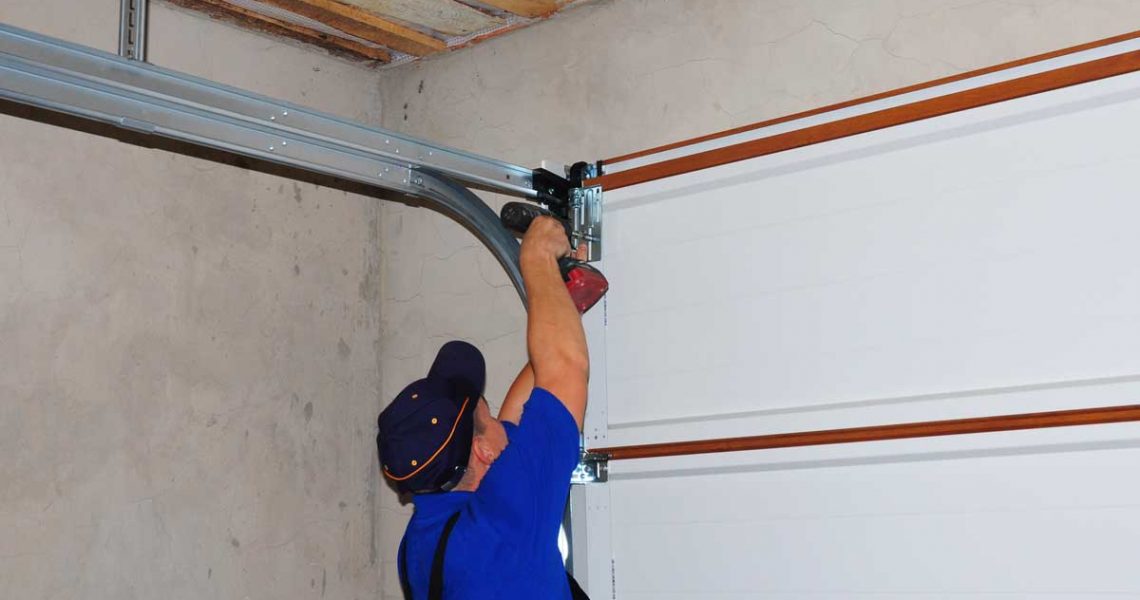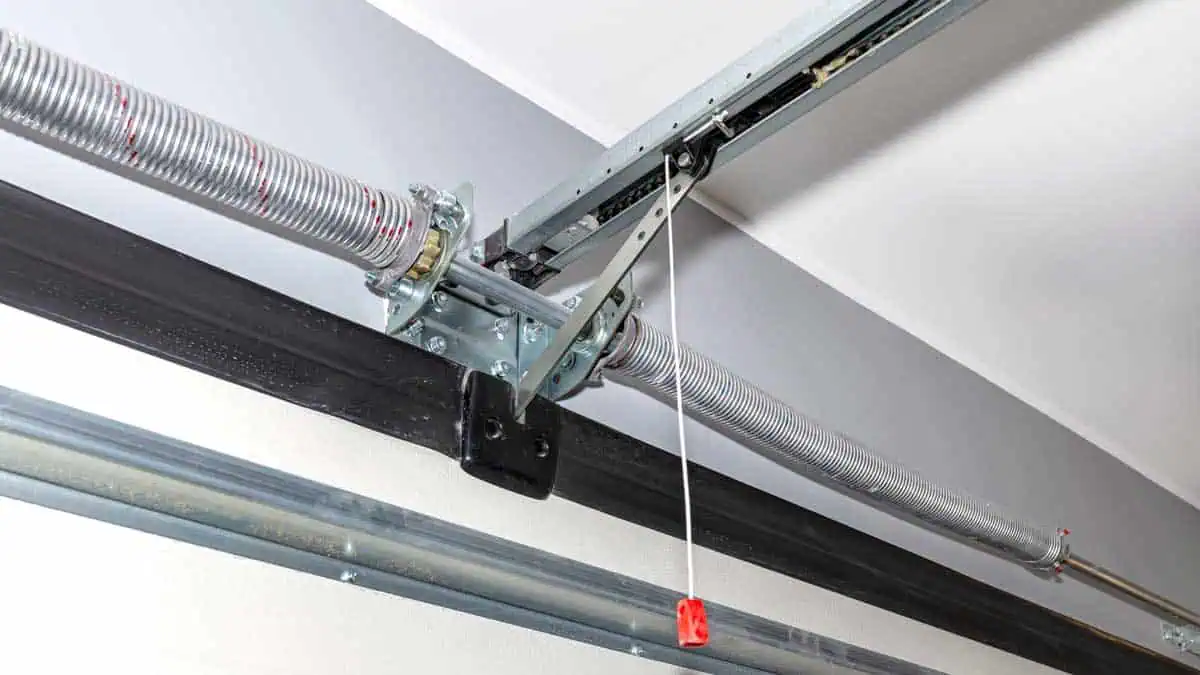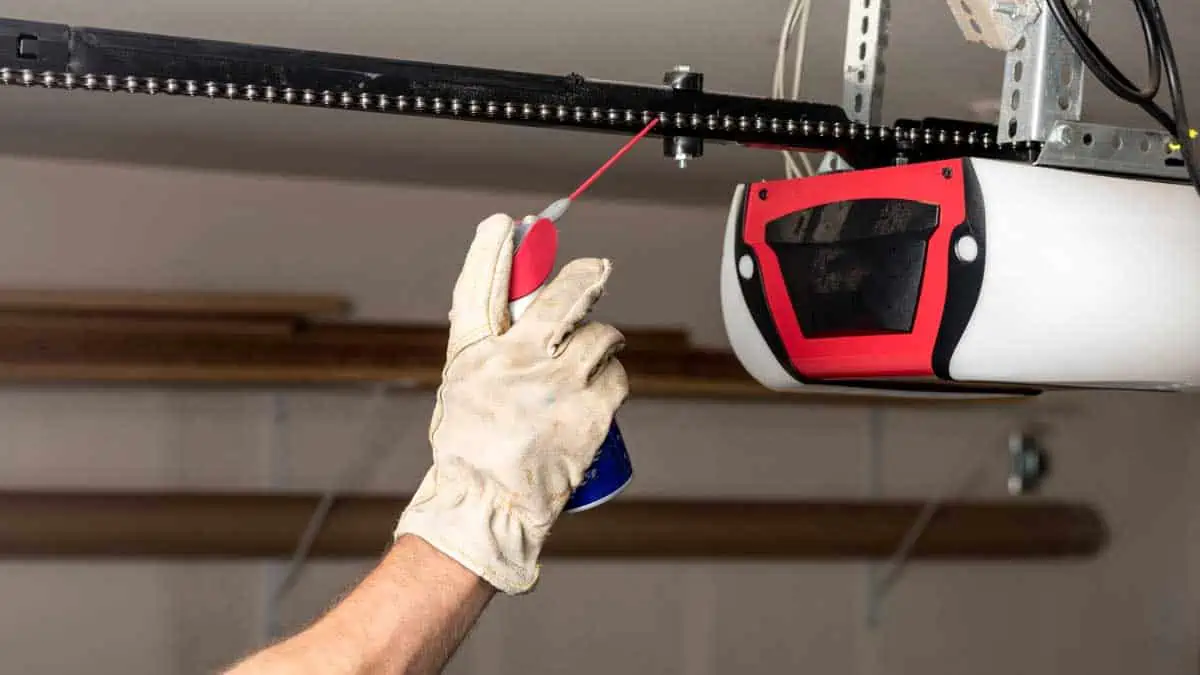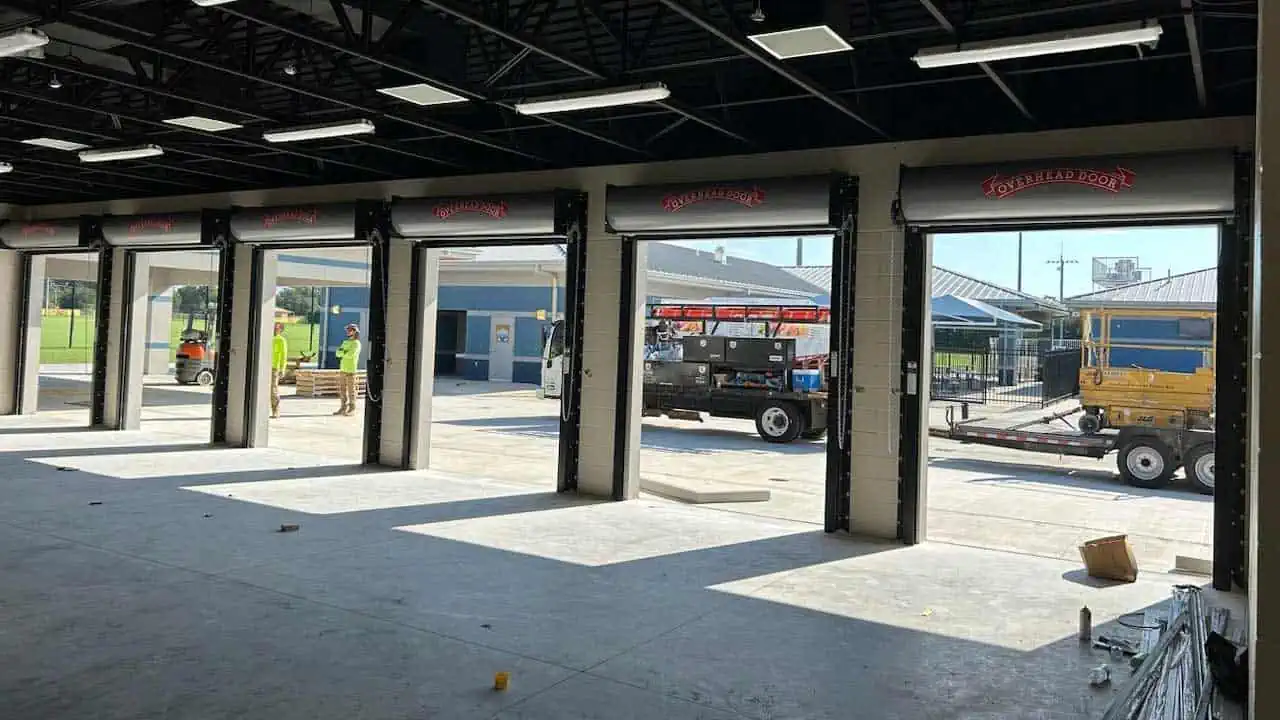One of the most appealing features of any home is a nice garage.
It can protect your car from the elements, provide workspace for the handyman, or it can be used for storage; perhaps all three. Whichever the case, very few things are as annoying as pressing the garage door opener button and hearing a noise that sounds like a freight train. Not only is this an assault on your senses, it’s most likely an indication that your garage door is in need of some type of maintenance or repair.
There are an assortment of garage door designs; for instance, there are sectional doors, roll-up doors and side-hinged door types, just to name a few. Regardless of the type of door you have, there are parts that require regular maintenance to keep them operating smoothly and quietly. Some garage door maintenance can be simple procedures you can handle in less than an hour, others should not be attempted by the homeowner due to the risk of injury. If you’re not completely certain you’re within your mechanical abilities with any part of garage door maintenance, err on the safe side and hire a professional. Now, let’s examine some of the possible causes of garage door noise and the steps you can take to quiet things down.
Before you begin any work on your garage door, close the door completely, disconnect power from the opener and disconnect the door from the opener by pulling the release rope. Refer to your owner’s manual for detailed maintenance information.
Clean Moving Parts
All good maintenance begins with cleanliness. Over time, your garage door parts will attract dirt and grime; if you’re like most people, your garage doesn’t get dusted and vacuumed like the inside of the house does, so your door’s moving parts will need cleaning. Use a damp cloth to remove dust and dirt from the hinges, rollers, springs and rails. While cleaning, inspect all parts for damage or wear.
Check Door Hinges
There are three things to pay attention to when it comes to garage door hinges: looseness, wear, and poor lubrication. Inspect all hinges to ensure that they are properly tightened. You can do this with a socket wrench. Test all the bolts that connect the hinge to the door. If a bolt is loose, tighten it until it is secured to the door, but be careful not to over-tighten it. Check that all the hinges are properly lubricated. If you can’t remember the last time you lubricated the hinges, it’s time to do it.
You may be tempted to use multi-use lubricants on the hinges, and they may quiet things down temporarily, however, they break down quickly and allow dirt to form in the areas where they are applied. It’s worth a trip to your local home center store to buy the proper lubricant for this job. You can buy lubricant specifically for garage doors. It is perfect for this application because it goes on as a liquid, and dries to a non-tacky grease that won’t attract dirt and grime. Spray the lubricant liberally on the hinge and into the area where the roller shaft turns inside the hinge.
Visually inspect hinges for wear. If you see metal shavings on the hinge, or if the area around where the roller contacts the hinge is elongated, the hinge needs to be replaced. You can get replacement hinges at a home center store, or if they don’t have exactly the one you need, you can probably find it online. Just be sure to buy an exact replacement part.
Get Your Fast and Free Garage Door Estimate.
No Obligations. Residential or Commercial.
Check Rollers
Another common source of garage door noise is worn rollers. Like hinges, the rollers must be properly lubricated. After a while, rollers will wear down and need to be replaced. Replacement rollers come with either steel or nylon wheels. Nylon wheels are quieter than steel, and will stand up to the same loads as long as you select rollers with the proper weight rating.
Door Opener Maintenance
Door opener mechanisms can make a fair amount of noise. Openers come with a few different drive types.
One of the most common and least expensive type opener is the chain-drive. It is also the loudest of the lot. It uses a chain to move a trolley that lifts the door. It generally requires little maintenance, but you should be sure to keep the chain well lubricated. Also, the chain can develop slack and slap against the track causing some racket. If this happens, you will need to adjust the chain tension.
One of the most commonly used door opener drive systems is the belt-drive. It works like a chain-drive system except it uses a belt to move the trolley that lifts the door rather than a chain. The main advantage of the belt-drive system is the noise dampening properties of the rubber belt. Like the chain-drive, belt-drive systems will require tension adjustments from time to time. Belt-drive systems are the quietest of all door opener types.
There are also screw-drive openers that use a threaded rod that turns and moves the trolley to lift the door. If you have a screw-drive opener, you need to keep the threaded screw lubricated. The noise level of the screw-drive opener is moderate; quieter than chain-drive and slightly louder than a belt-drive.
If you have a chain or screw-drive opener, and it works fine, there’s no need to run out and replace it with a belt-driven model. However, when the time comes to replace the opener, you may want to switch to a belt-drive system to achieve quieter operation.
Vibration
In situations where most of the noise from the garage door is heard inside the building, such as a bedroom over the garage, the source of the problem could be vibration transferred via the building structure. In this case, you can insert vibration isolating pads between the opener mounting brackets and the building structure. You can buy anti-vibration kits designed specifically for this purpose for around $15. Some people fabricate their own pads from other forms of thick, firm rubber, such as an old tire; and you can do that too, but considering the low price of the kit, you might as well go with the kit.
Once you perform all the steps we’ve discussed, your garage door should be quieter. If your door is still louder than it should be, you should call the professionals at Overhead Door of Tampa Bay. Regardless of how you end up solving the problem, don’t wait for the freight train to come rolling in again. Perform these maintenance procedures every six months to keep your garage door quiet and in good working order.
Contact the Garage Door Experts at Overhead Door Company of Tampa Bay™ for your Garage Door and Loading Dock Equipment needs.







